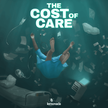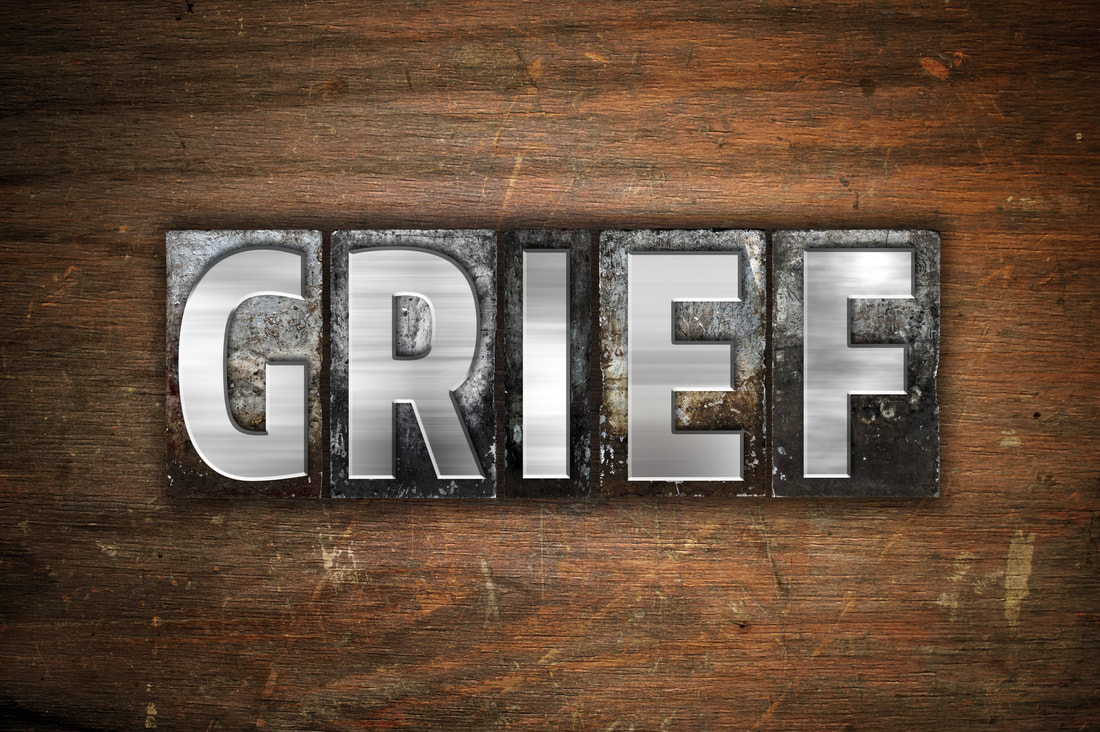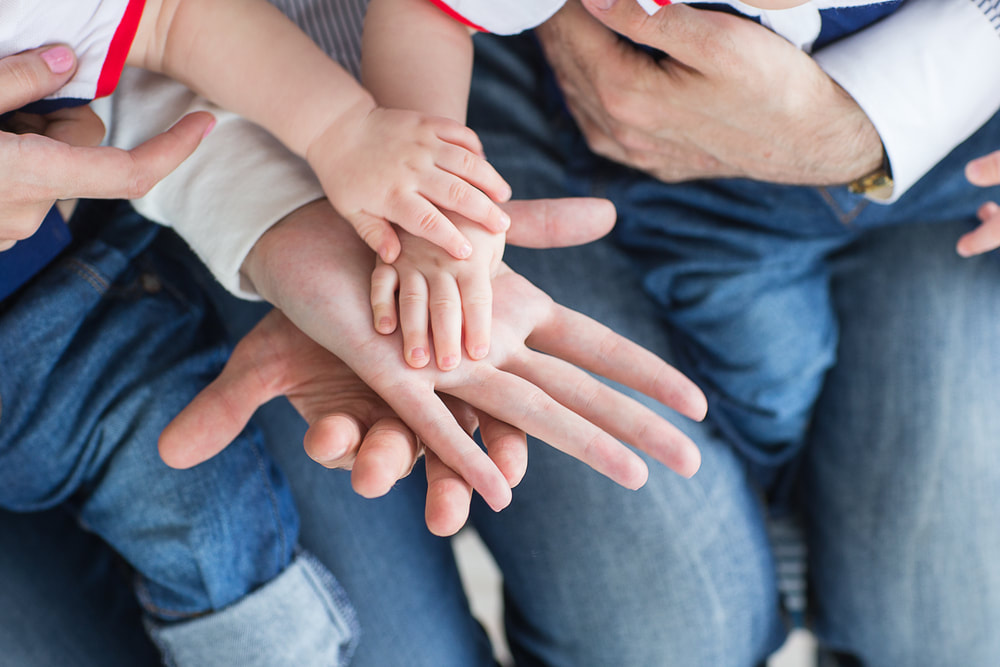|
Hard to believe it's been over a year since the last post. During the break, I channeled my pandemic-related angst into kitchen projects. I learned how to bake with sourdough, tried scores of new recipes, and enjoyed leaving goodies on the doorsteps of neighbors and friends. I learned that sharing home-baked treats with loved ones is a surefire way to reclaim joy. I also spent a lot of time thinking about the ways in COVID has exposed the brokenness our systems and institutions: government, policing, education, and, of course, healthcare. It was the latter that inspired a conversation with the producer of a wonderful new podcast called "The Cost Of Care" The conversation is featured in episode 5, which is called "Burnout: The Vicious Cycle." The Cost of Care takes an in-depth look at our insurance-based, fee-for-service healthcare model, which many believe is neither ethical nor sustainable. This episode addresses the prevalence of burnout among contracted mental health providers (i.e., psychologists, social workers, therapists, and counselors) who, after years of working twice as hard for half the money, feel the only sane, reasonable choice is to leave insurance panels altogether. The net effect of this provider exodus is three-fold. The list of experienced contracted providers shrinks, the therapists on that list are full (thus, unable to keep up with new patient demand), and the patient pays the price, literally and figuratively. Patients who don't have the means to pay for counseling don't get the care they deserve. And the patients who do have the means don't get to utilize the benefits for which they pay so dearly. Does this sound okay to you? Me neither. Hence the conversation with Cost Of Care. I hope you'll give it a listen. Until next time... Dr. Jill Gross is a licensed psychologist, therapist, and counselor in Seattle, WA. She offers grief therapy, divorce counseling, and other counseling services in the Phinney Greenwood area of Seattle, WA.
0 Comments
Many of us are wondering how best to tend to our mental health whist we are hunkering down, waiting for the global, category five hurricane to pass. Aside from adhering to personal hygiene and social distancing protocols, there is little more we can do to curb spread of COVID-19. Virulent panic, however, is a different story. In this article we will explore fear’s true purpose, the problems we are likely to encounter when we become overly attentive to fear (i.e., panic), and what we can do to step out of fear once it has fulfilled its purpose. Healthy fear is meant to wake us from denial and get us to take action. Without fear, it is likely we would still be rubbing dirty hands all over our faces and gathering in public spaces. When we listen to fear and respond accordingly, fear has done its job. After that, the healthiest thing to do is let it go. Continuing to ruminate about things beyond our control is a one-way ticket to panic which, like fear, also has a specific purpose. Eons ago, it was panic that alerted us to clear and imminent danger. It prompted us to run, fight, or flee to avoid being eaten by predators or killed off by neighboring tribes. Today, panic is helpful in so far as it protects us from danger that is happening in the present moment: the smoke alarm sounds and we quickly exit the building. Beyond that, panic is pretty much useless. In states of prolonged stress, the brain can get stuck in panic mode. When the smoke alarm routinely sounds, it becomes difficult to distinguish a false alarm from a real fire. What’s more, primal fear can manifest as a state of impending doom, about which we must do something, even when there is nothing more to do. In panic mode, our thoughts and actions will organize themselves around two themes: life (i.e, food, sex, and toileting) and death. Additionally, primal fear incites irrational competitiveness. Plentiful goods (read: toilet paper) suddenly appear to be in short supply. So we overbuy, all but guaranteeing the very scarcity we fear most. I suspect this to be the reason that supermarket shelves are empty. We are worried there will not be enough for everyone so we make sure there isn’t enough for anyone. Sound smart to you? Me neither. Like most primitive instincts, panic is neither discerning nor sophisticated. Okay. Now we know about panic and the understandable (but not so helpful) compulsive behaviors that come with it. It’s time to talk about what we can do to turn off the panic switch. Here are a few things to try:
Remember pandemics are both temporary and survivable. While it true (and sad) that some will not outlive COVID-19, it is also true that the vast majority of us will. The pandemic will end eventually. When it does, just as our foremothers and fathers did in 1919, we too will rebuild. In the meantime, we must choose wisely when and how we engage with fear. If you are following personal hygiene and social distancing guidelines, then fear has already served its purpose. It’s okay to let it go. Dr. Jill Gross is a licensed psychologist, therapist, and counselor. She offers grief therapy, divorce consultation, co-parenting support, and other counseling services in the Phinney Greenwood area of Seattle, WA. Stuck in panic mode? Schedule a free phone consultation to find out how counseling can help you go from panic to peace.
Over the years I have encountered numerous myths and misconceptions about divorce-related grief, the most common of which is the notion that it is linear, logical and finite. We expect grief to peak immediately after separation, then slowly subside until, perhaps a few months later, we are mostly pain-free. If only that were true! Separation and divorce shakes our snow globe, causing its vulnerable particles to erratically float around with no end in sight. So it's no wonder that any human being would want those particles to settle quickly, in an orderly, predictable way. Unmet grief expectations are frequently construed as failure. We don't feel the way we think we should, so we conclude that we are not "doing it right." This adds unnecessary suffering to pain. We can create a more accepting relationship with ourselves and our grief when we understand its true nature. To that end, I have created the following list of often-experienced-but-rarely-discussed, long-term emotional truths about divorce:
If you’re still reading this, I imagine you may wondering what can be done to help mitigate the pain of these truths. One of the most important things we can do, post-divorce, is clarify our values (e.g., family, commitment to service, personal accountability, kindness toward others, etc.) and commit to living those values. This sounds simple. But it is not always easy. Furthermore, habits of intentional living take time--sometimes years--to develop. Now is the time to be kind and patient with yourself. Keep in mind that few roads are perfectly smooth or straight. If you find yourself straying from your values, recommit to them. Repeat this process as many times as needed. Finally, keep in mind that the presence of difficult emotion does not signify the absence of coping. All emotions, even the unpleasant ones, signify our humanity. Feelings are a normal, natural part of any living finish. Dr. Jill Gross is a licensed psychologist, therapist, and counselor. She offers grief therapy, divorce consultation, co-parenting support, and other counseling services in the Phinney Greenwood area of Seattle, WA. If you would like help coping with the long-term emotional impact of divorce, follow the link below to schedule a free consultation. On the cusp of a breakup, separation, or divorce, it is common for people to focus mostly on what they will lose: a spouse or partner, time with their children, relationships with the ex's family and friends. The list goes on and on. As a separation and divorce counselor, I like to help clients honor the pain of loss while reminding them of what will also be gained: relief from the tension of a relationship that wasn't working, the confidence of knowing they can thrive on their own, new experiences with people they've yet to meet. This list, too, can go on and on. When the basic business of just getting by (e.g., getting out of bed, taking a shower, going to work, etc.) seems herculean, it's hard to trust that the future will be bright. But, with a little mindfulness, some time, and some effort, it is possible to thrive after a breakup, separation, or divorce. If you are in the pain trenches of acute loss, here are a few tips to help guide you toward a brighter future:
Even if you don’t believe it right now (which is okay), you are heading toward wherever you are meant to go. What if this ending is an invitation to feel as whole as you already are? Dr. Jill Gross is a licensed psychologist, therapist, and counselor. She offers grief therapy, divorce consultation, co-parenting support, and other counseling services in the Phinney Greenwood area of Seattle, WA. If you would like support in finding the forward path, schedule a free consultation to see how divorce counseling can help. Counselors and therapists once conceptualized grief as a linear process. It was meant to unfold in predictable stages: denial, followed by anger, bargaining, depression and, finally, acceptance. We used to think grief had a beginning, a middle, and an end. Grief experts think differently now. The grief model has considerably expanded over the last decade. While the above described experiences depict what many grievers encounter after a loss, we now know that the "areas" of grief are neither linear nor universal. What's more, grief has proven itself to be cyclical, free-flowing, and without an endpoint. Though our understanding of the grieving process has evolved, many of the grievers I see in therapy judge themselves harshly when their grief does not look or feel the way they think it should. They should feel more of this or less of that. They admonish themselves for moving forward too quickly; flagellate themselves for lagging behind. This happens even when I remind them that grief is both unpredictable and specific to the griever. Grievers will cling to the idea that, somehow, they are doing grief wrong--even though doing so makes them feel worse than they already do. It's normal, when faced with uncertainty, to yearn for order and predictability--both are associated with our sense of emotional safety. Yet telling ourselves we should feel something other than what we do feel is akin to tossing a boulder into the middle of a stream. It interrupts what would otherwise naturally flow toward its intended destination. Take Sylvia* for example. Silvia was 35 when she sought grief counseling to deal with the death of her beloved father. Sylvia and her father were so close everyone, including Sylvia, expected she would fall apart after his death. But that did not happen. In fact, Sylvia sought therapy because she was concerned about what she described as "a disturbing lack of emotion." We explored this together. When I asked Sylvia to tell me more about her father, her face lit up. She spoke at length about a robust, generous, sharp-witted family man. He was a present and engaged father to Sylvia and a wonderful grandfather to Sylvia’s two children--until he was diagnosed with early onset Alzheimer’s Disease. The diagnosis was followed by a rapid decline in physical and mental health, which sent the whole family into turmoil. Sylvia’s demeanor shifted as she described what it was like to watch the disease whittle away at her father. Just before his death, Sylvia's once-independent role model could no longer feed or bathe himself. He was unable to recognize a single member of the family he loved so dearly. Sylvia's dad was alive. But he wasn't really living. As I listened to Sylvia's story it occurred to me that the issue at hand was not a lack of emotion. It was the belief that her grief was supposed to occur in order. The sadness she expected would come after her father died actually took place long before his physical death. When death marks the endpoint to prolonged suffering, it is common for family members to feel some degree of relief. Rarely can they admit this without feeling guilty. So they don't talk about it all. This was the case for Sylvia. Therapy gave Sylvia the one thing she needed most: a safe place to speak her truth, even though it did not sound the way she expected it would. With time and therapy, Sylvia was able to make peace with her grief. It is when we are vulnerable that we are most worthy of patience and grace yet, for many, this is the time we are least willing to extend it. If you are telling yourself you should be anywhere other than where you are in this moment, I invite you to remember that grief is a natural and organic process that needs only to be witnessed and felt. It's okay to let go of grief-related expectations--they will only get in your way. Instead, trust your grief and yourself. Both are trustworthy. *All identifying information has been changed to protect patient confidentiality. Dr. Jill Gross is a licensed psychologist, therapist, and counselor. She offers grief therapy, divorce consultation, co-parenting support, and other counseling services in the Phinney Greenwood area of Seattle, WA. Having trouble trusting your grief? Schedule a free consultation to see how grief counseling can help you find the forward path. Early grief is a basket of contradictions. The pain tells us to “do” something but everything hurts and there is nothing we want to do. We want the pain to stop but letting it go feels like a betrayal: of the deceased, of us, of our grief. We long for supportive company but accepting well-intended offers from people who have no idea what we are going through makes us feel even more alone. In moments like these, our pain seems unsoothable: nothing can be done or said to make it dissipate. It’s okay to long for the life you had with your loved one. And, it is equally important to keep going forward with life as it is now. There’s a good chance you feel as sad as you do because you deeply loved someone and because you were deeply loved in return. The truest form of love is the unselfish wish for another to be happy, even when we cannot be with them in physical form. By continuing to care for yourself, you are not only honoring the person you lost, you are stepping toward your own aliveness. Which, conveniently, happens to be the best forward path after loss. We do this slowly, one moment, one day, one week at a time. Here are a few tips to help reconnect you with your own aliveness:
Speaking of time, now may be a good one to remind you that, everything, even your pain, is designed to be temporary. You will hurt for a while but you won't feel this way forever. With each day that passes, each forward step you take, you are succeeding are rebuilding your life. And that is more than enough. Dr. Jill Gross is a licensed psychologist, therapist, and counselor. She offers grief therapy, divorce consultation, co-parenting support, and other counseling services in the Phinney Greenwood area of Seattle, WA. Having trouble rebuilding after the death of a parent, spouse, child, family member or friend? Schedule a free consultation to see how grief counseling can help you move forward in a healthy way. Season's greetings, everyone! Since the last blog post, I received a letter from one divorced reader who is struggling with a question frequently seen in my therapy practice, not only among separated or divorced individuals, but with married and single people as well: "how do I communicate effectively with a 'slow-or-no' responder"? Slow-or-no responders are folks who take an unusually long amount of time to reply to emails, texts, or phone calls (if they reply at all), even when the issue at hand requires their input. If you've ever tried to make plans with a slow-or-no responder, this reader's frustration will sound familiar. Fear not! The suggested tips below are a sure fire way to free yourself from the slow-to-no response trap. Enjoy and happy holidays! Dear Dr. Jill, I have a communication-related question. Some background: My ex and I have been living apart for almost three years. We have three children. They are 6, 8, and 11. For the most part, we see eye-to-eye. We usually keep it cordial and civil. Because we have three children, there are lots of details to keep track of. Two kids in soccer and one in piano. When we were married, I was the one who took the kids to their medical appointments, practices, recitals, and such. Since we separated, the one place we struggle most is with communication. Between the two of us, I have the more flexible work schedule. This means I am on the front lines with pick ups and drop offs, appointment scheduling, etc. Sometimes this coordination requires her consent and/or her participation. That is where we clang heads. When I make a request, it takes days—even a week—to hear back from her. Sometimes I get no response. One time, our oldest son missed an important school outing because my ex didn’t get back to me in time. Our parenting plan says that all major decisions will be jointly made. So I'm kind of stuck here. I’ve tried to talk with her about this issue. She usually either gets defensive or says she’s working on it and promises to do better. With one or two exceptions, things have stayed status quo. I’m wondering if this is something you’ve helped clients with and, if so, can you give me some pointers for how to deal with it? Sincerely, Frustrated Co-parent Dear Frustrated, Sounds like this experience has neatly nestled you, right between a rock and a hard place! Making joint decisions with someone who won't decide, can be frustrating. Knowing and communicating boundaries is the most effective way to free yourself from what I like to call the "slow-to-no response trap." When coordinating with someone who is slow to respond (or who doesn't respond at all), with each request, it is important to communicate three things: the ask, the expected response time, and what you will plan to do if you do not hear anything back from her. Here is an example of what this kind of communication looks or sounds like: "Hi Brenda, I just received notice of a mandatory work meeting that is scheduled to take place tomorrow evening, when the kids are scheduled to be with me. I am wondering if you would be willing to pick the kids up from aftercare and keep them until I can pick them up at 8:00 p.m.? If you would please let me know by 6:00 tonight, that would be great. If I don't hear anything back by then, I will find an alternate arrangement. Thank you, Jim" By communicating a clear time frame and a pre-determined backup plan, any potential for Jim to feel burdened by slow-or-no response is removed. Differences like the one described in your letter are common among divorced co-parents. It is for precisely this reason that some parenting plans include a clause which stipulates that, after a written request is sent, the responding party must provide an answer within a pre-specified amount of time, after which, if no response is received, the requesting party is free to make a decision. Ideally, the parenting plan would also stipulate different response times for matters that are considered urgent (e.g., medical emergencies, school-related activities, important deadlines, etc.). If your parenting plan contains this language, I suggest calmly reminding your ex (by phone if possible—the tone of email can easily get misinterpreted) of the agreed upon timeline(s). Once you’ve referenced the agreement, it is up to you to abide by its terms. In so doing, any future disregard for the documented timeline, by either party, will be construed as permission to proceed. If your parenting document does not include the aforementioned clause, I recommend including it, ad hoc. Though you can choose to do this via the legal system, if you and your ex are pretty good about adhering to agreements, legal intervention may not be necessary. Let your ex know that you would like to work with her to come up with a response timeline that each of you will follow, for both urgent and non-urgent situations. Once this agreement is in place, write it down. Keep a copy for yourself and provide your ex with a copy to refer to in the future. After the agreement is in place, stick to it. When solo decisions are made, send a courtesy follow up email so your ex is in the loop. One final tip. Though it won't always be possible, whenever you see an opportunity to free yourself of the slow-or-no-response game, take it. Try to minimize the number of appointments, activities, and events that require cross-coordinate between you and your ex. One way to do this is to schedule kid-related activities only on your own residential time. Hopefully these tips will help free you up to do more of what you do best: love your children. Good luck! Yours In Health, Dr. Jill Dr. Jill Gross is a licensed psychologist, therapist, and counselor. She offers divorce consultation, co-parenting support, grief therapy, and other counseling services in the Phinney Greenwood area of Seattle, WA. Struggling to communicate with an ex? Schedule a free consultation to see how divorce counseling and co-parent support can help you create the co-parenting relationship your children deserve. How To Build A Strong Co-parenting Relationship (Even When You Don't Really Feel Like It)10/20/2018 Compartmentalization is the psychological curtain that slides closed when our feelings get too messy, uncomfortable, or inconvenient. Find compartmentalization and you will often find judgment--for the CEO who delivers inspirational speeches to shareholders from whom he is bilking millions. For the spouse who kisses her unsuspecting husband goodnight before heading downstairs to check the Tinder account. It’s easy to judge compartmentalization when it is used to facilitate subpar behavior. But every card has two sides. When used appropriately, compartmentalization can help divorcing spouses build and maintain a constructive co-parenting relationship. Figuring out how to divide time with children, financial resources, and possessions can be a Herculean task, especially when one person neither asked for nor wanted the divorce. It's common for exes to become triggers or targets for anger--sometimes even rage. Anger, like all dark emotions, serves a specific purpose. In divorce, anger can help us forge the distance needed to heal the wounds of loss. Furthermore, when channeled appropriately, anger can fuel the rocket ship that propels us toward a new, post-divorce life. But here’s where things get tricky. The most reliable predictor of children’s post-divorce adjustment is how well they are (and continue to be) protected from adult feelings and conflicts. In other words, the anger we need to feel in order to heal is the very emotion we must filter away from our children and out of our co-parenting relationship. Here's where compartmentalization comes in handy. When acrimony is appropriately contained by adults, kids are free to work through their own divorce-related feelings--without feeling burdened by ours. To help divorcing spouses better understand healthy compartmentalization, I use the following metaphor. Imagine your brain is like Hogwarts, where each thought, feeling, or task must be sorted into three empty boxes: the marital box, the parenting box, and the in-between box. What follows is a description of all three boxes, along with a few tips for how to create them. The Marital Box. Negative sentiments about the relationship, the divorce, and/or your ex belong in the marital box. This box should be stored high on a shelf where only you (not your ex or your children) can access it. In the early stages of separation, it is likely your marital box will be quite full--even overflowing. This is completely normal. Set a goal to reduce the size of your marital box by carefully working through its contents. Do this on your own, with a therapist, or with other trusted adults in your life. Reassure yourself that, with time and appropriate resourcing, the size of this box will eventually shrink (It will. I promise). Helpful hint: Tempting though it may be, avoid sorting through your marital box with your ex. Your former spouse cannot help you get over him or her. Conversely, should your ex attempt to enlist you in sorting through his or her martial box, it’s okay to respectfully disengage. A brief “I’m sorry I cannot help you.” will suffice. Trust that, if you and your former spouse could resolve your differences, you would have by now. That time has come and gone. The Parenting Box. You and your ex share this box. Unlike the marital box, the parenting box should be void of emotion. It contains only information pertinent to raising healthy kids smoothly in two households (i.e., residential schedules, school events, extracurricular activities, medical appointments, etc.). Any text, email, or phone call between you and your ex should be brief and pertain only to the business of raising your children. Growing up, my father used to say, “Never wrestle with a pig. You’ll just get dirty...and the pig likes it.” This was his colorful, Southern way of noting the inverse correlation between anger and insight. Acting out of anger rarely leads anywhere productive. What's more, the angrier we are, the easier it is to get the marital and parenting boxes mixed up. I suggest dealing with the contents of the parenting box when both you and your ex are calm and clear-headed. Helpful hint: If you do get worked up, keep yourself out of the mud by taking the time needed to calm yourself before reengaging with your ex. Additionally, before responding, I recommend sending emails and texts to a neutral third party (e.g., trusted friend, divorce coach, etc.) to make sure they are 'washed clean' of negative emotion. Helpful hint: It's always better to lead by example than to get in a mud-slinging contest with your ex. If your ex lashes out at you, resist all urges to fight back or defend yourself. Staying within the confines of the parenting box does not make you a pushover. It makes you an example of the mature, stable co-parent your child needs you to be. Helpful hint: Determine ahead of time your goal for any communication with your ex. Include in your communication only the facts that serve this goal. For instance, if you are hoping to swap weekends, with sufficient notice (which should be stipulated by your parenting plan), provide in writing the dates you would like to swap. Your ex does not need to know the reason for the swap. Just the dates in question will suffice. The In-between Box. The in-between box is a place for neutral-positive sentiments related to your fellow co-parent. This box is meant to be shared freely with your child and, on occasion, with your ex in front of your child. Here are a few examples. Let’s say your ex is a fabulous cook and your child expresses interest in learning to cook. This is a great time to say, “You know, your Mom is an excellent chef. How lucky you are to learn from the best!” Perhaps your ex is a musician and your child has taken up an instrument. Upon leaving a school concert together, in front of your child, it's okay to say to your fellow co-parent something like, “I can see Tim has inherited your musical abilities. It’s great to see him share his love of music with you.” I cannot overemphasize how much this means to your kiddos. Your child’s developing ego cannot easily distinguish itself from others. Thus, when you say positive things about and to the other parent, you are actively bolstering your child's self-esteem. Helpful hints: If you are struggling to fill your in-between box, it may be useful to remind yourself that no one is either all good or all bad. To assume the latter about your marriage or your ex is to discount the positive attributes that brought you together, the most important of which was the fate of becoming your children's parents. Even if your marital box is overflowing, look for ways to encourage your child to have a positive relationship with his or her other parent. Even when it is the right decision, divorce is rarely easy. The clarity needed to compartmentalize feelings appropriately can elude us when we are in pain. Let this be your motivation to seek support from others. Find people who have successfully weathered divorce. Ask them for tips about what worked, what didn’t, etc. Find a therapist in your area who specializes in working with divorcing co-parents. No one should have to do this alone. Finally, remember that, while pain is temporary, parenting is forever. Committing the time and energy it takes to build and maintain a constructive co-parenting relationship with your ex is one of the best investments you can make--for yourself and, most importantly, for your children. Dr. Jill Gross is a licensed psychologist, therapist, and counselor. She offers divorce consultation, co-parenting support, grief therapy, and other counseling services in the Phinney Greenwood area of Seattle, WA. If you need help sorting through divorce-related feelings, schedule a free consultation to see how divorce counseling and co-parent support can help you create the co-parenting relationship your children deserve. In an ambiguous world, few things are both certain and final. Death is one of them, yet many of us don't know what to do when someone we love loses someone they love. As a grief therapist and counselor, I have observed over the years how intricately fear and anxiety are stitched into the grieving process--for both the griever and for his or her support system. The most common fear among those asked to bear witness to grief is that of saying or doing the wrong thing. This is understandable. We would never want loved ones to hurt more than they are already hurting, certainly not by something we said or did. We may err on the side of staying away, giving those in mourning the space we tell ourselves they need, which, if we are totally honest, is really a way of protecting ourselves from the discomfort associated with making a mistake. There is only one problem with this approach. Anyone in mourning will tell you that it hurts most when others say or do nothing at all. People in acute grief are ashamed of their vulnerability. They worry their pain is more than others can bear. Silent phones, empty mailboxes, and shadowless doorways confirm this fear. Losing a loved one is like being dropped, without a map, into a foreign country where we don’t speak the language. Even the most mundane tasks seem unfamiliar or insurmountable. What better time for a friendly face to happen by with a warm hand, kind words, and a sandwich? Here are a seven things you can do to show support for someone who is grieving:
Even if your texts, calls, and gestures go unanswered, I promise you they do not go unnoticed. Your presence communicates to your loved one, "I can handle this. I'm here. You matter." The above tips were originally featured in this article. If you would like more suggestions on how to support someone who is grieving, be sure and check it out! If you have any thoughts on how to show support when a loved one dies, please feel free to share them in the comments section below. Dr. Jill Gross is a licensed psychologist, therapist, and counselor. She offers grief therapy, divorce support, and other counseling services in the Phinney Greenwood area of Seattle, WA. If you've recently experienced a loss and want to know more about how grief counseling can help you find the forward path, schedule a free consultation. Just over half of marriages or domestic partnerships will end in separation or divorce. Though couples may struggle to reach consensus on numerous issues, most separating spouses can agree that protecting the child or children's best interest should be top priority. This sounds pretty straight forward yet, when adults posses intense feelings toward one another, it is anything but simple. If you and your soon-to-be ex are confused or struggling with how best to talk with your children about divorce, here are a few tips for keeping things on track:
It is normal for separating spouses to posses some degree of negative feelings about the other. This is particularly true in cases where one spouse did not have a choice about the divorce. Thus, I encourage both partners to lean into their adult support systems (friends, family, support groups, therapists or counselors, etc.). When the adults care for themselves and each other appropriately, everyone benefits, including and especially, the children. Dr. Jill Gross is a licensed psychologist, divorce therapist, and grief counselor in the Phinney - Greenwood area of North Seattle. If you have questions about how to nurture your children through divorce, help is just a click away. Schedule a free consultation to see how divorce counseling and co-parent support can help you and your children thrive after divorce. |
AuthorDr. Jill Gross is a licensed psychologist, specializing in grief and divorce. Her coaching and therapy practice is located in the Phinney - Greenwood area of North Seattle in Washington. Archives
May 2021
Categories
All
|
HoursM-TH: 8:30 AM - 2:00 PM.
By Appointment Only |
Telephone & Email |
Address503 N. 50th Street
Seattle, WA 98103 |
*Header Photographs courtesy of Josh Martin












